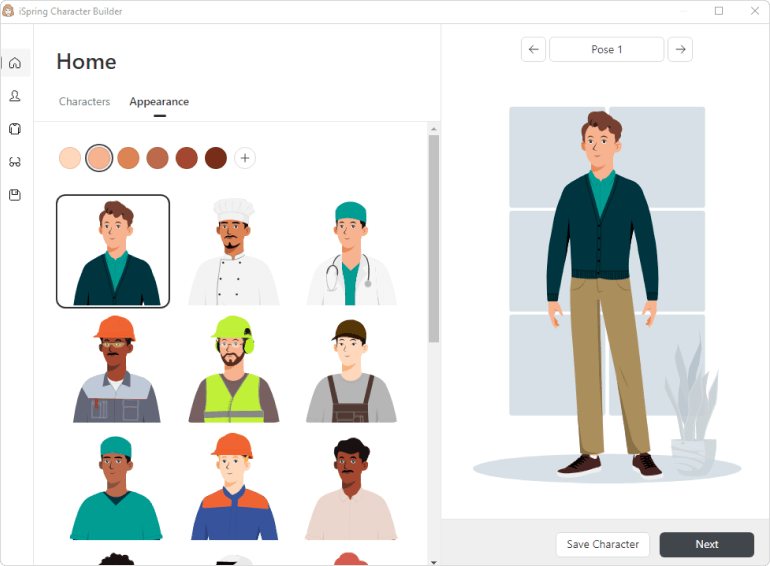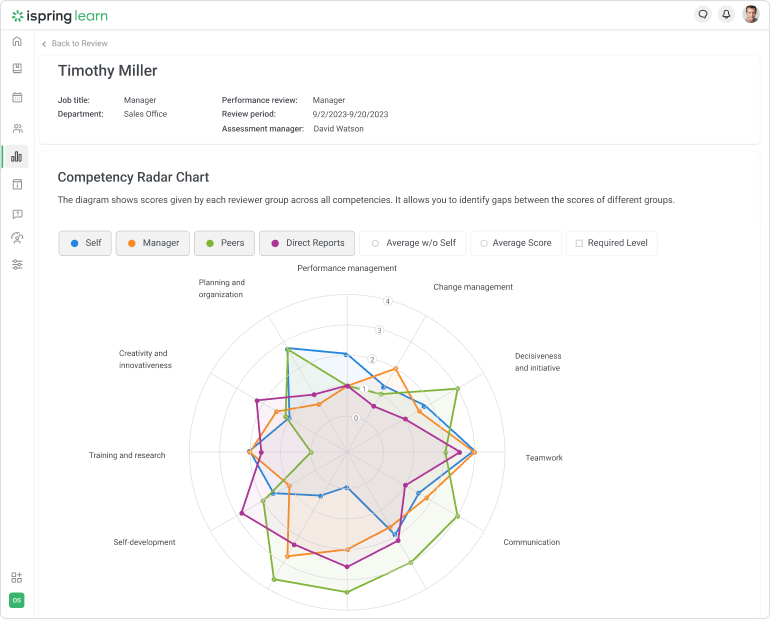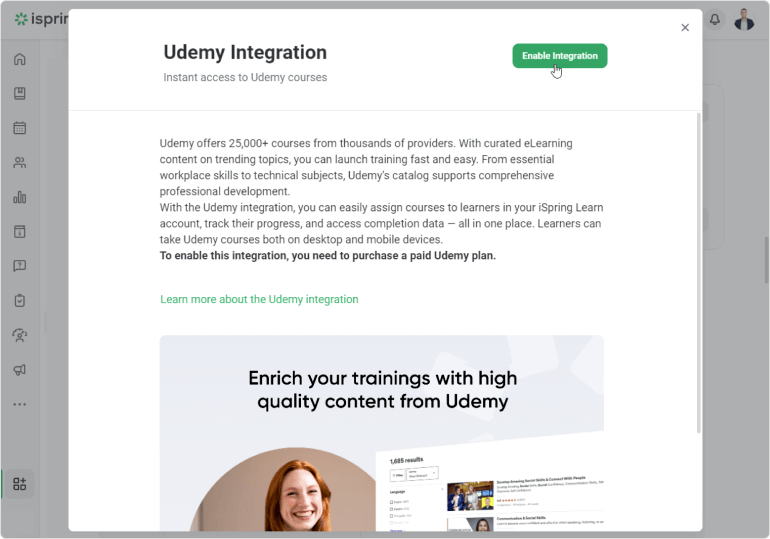
The Surprising HR Benefits Of L&D And How To Reap Them
It’s no secret that quality employee training has a positive impact on the health of an organization’s HR. From improved retention to higher job satisfaction, training strengthens the workforce by enhancing skill development and building a culture of continuous growth. But what about the more surprising ways that effective online training can give your HR brand a serious boost? Here are 5 unexpected benefits you might not have considered.
1. Training Improves An Organization’s Corporate Social Responsibility Image
Corporate social responsibility (CSR) is a company’s commitment to conduct business ethically by taking into account its social, economic, and environmental impact. Employee development is an integral part of this commitment—quality skills enhancement not only benefits the workers but also fosters an internal culture of shared values in a company. This translates into a strengthened HR brand that’s perceived as caring, responsible, and invested in both employee well-being and societal progress.
How To Reap This Benefit
Create and deliver training on the core values and principles your organization stands for, embedding them into everyday practices and decision-making processes. Some examples are:
- Diversity and inclusion training
- Sustainable business practices training
- Transparency and accountability training
Pro tip: To make training engaging and effective, enrich your eLearning courses with relatable images, locations, and situations. For example, add characters of various ethnicities, genders, and abilities to your diversity training materials.
iSpring Suite is a go-to authoring tool to use for such scenarios: it has a one-of-a-kind character builder, so you won’t have to scramble through stock photos to find a good match.

2. Training Helps Develop A Unique Employee Value Proposition
Employee value proposition (EVP) is a set of benefits and rewards that employees receive in return for the expertise and performance they contribute to the organization.
A well-designed training strategy can be a cornerstone of a compelling EVP. It showcases the company as a place where employees can continually learn and progress rather than just perform their duties in return for a salary and traditional benefits. It also positions an organization as a forward-thinking employer that invests in its employees’ long-term success. This reputation works wonders to attract and retain top talent.
How To Reap This Benefit
Design training programs that offer results-driven skill development opportunities that are relevant to employees’ roles and career aspirations. Connect training to larger HR initiatives, such as performance management and leadership development. This will help you incorporate interactive and personalized learning experiences into employee training programs.
Pro tip: Gather employee feedback regularly to refine and improve training in your organization. Your workers should be the primary source of insights on what works well, what needs adjustment, and how training programs can better meet their changing needs and expectations.
3. Training Increases Internal Mobility
Employee retention is great; what’s even better is nurturing an organization where workers feel free to explore new roles and opportunities for professional growth. This is especially important for larger companies with increased departmental diversity and complex operational needs. Effective training promotes cross-functional expertise, which drives innovative business approaches and effective decision making.
For example, marketing employees who decide to receive training in data analytics can work with the IT team more effectively. They’ll know how to leverage data insights for targeted campaigns, build better marketing strategies, and achieve improved business outcomes.
How To Reap This Benefit
Offer cross-functional learning initiatives like:
- Skill development workshops
- Job rotation programs
- Mentorship programs
- Collaborative programs, etc.
Pro tip: Use LMS-based 360-degree reviews during mentorship programs to see how employees are doing in their new roles. A good example of comprehensive 360-review mechanics is found in the iSpring Learn LMS. The employee’s supervisors, coworkers, and subordinates can leave detailed feedback on their performance. The LMS processes the data automatically and builds a competency radar chart.

4. Training Develops External Partnerships
Partnering with other organizations, businesses, and institutions is a time-tested recipe for improving your organization’s HR brand and enhancing its industry presence. And why not build new partnerships through joint training initiatives? It’s a win-win strategy for both parties, thanks to shared expertise and resources.
How To Reap This Benefit
- Reach out to local universities to create a joint certification program
- Organize short-term internships for students and graduates
- Engage with industry associations to develop workshops or seminars that address key industry trends
- Partner with tech companies to provide employees with training on relevant technologies in their fields, etc.
You can host collaborative training programs easily via an LMS to ensure that remote employees have equal access to new knowledge. Besides, organizing joint training with partners online is more cost-effective—you won’t need to invest in logistics or physical infrastructure.
Pro tip: One more way to promote collaborative training initiatives for employees is through LMS integrations with learning libraries like Udemy, LinkedIn Learning, and Coursera. You can advertise these joint learning opportunities on your company’s website to attract new employees and showcase your L&D commitment.

5. Training Facilitates The Growth Of A Strong Alumni Network
Finally, investing in employee training and development helps create a positive work experience and fosters a tight-knit employee community. Those workers who eventually move on to new professional opportunities carry with them this positive perception of the organization.
This helps create a strong alumni network, where former employees remain connected and act as ambassadors for the company. They can provide valuable referrals, spread positive word of mouth, and even become clients or partners of the organization in the future.
How To Reap This Benefit
- Host alumni training sessions. Offer exclusive training events for alumni. You can focus on industry trends, advanced skills, or leadership development to keep them engaged and connected with the organization. LMS-hosted webinars or workshops are a good format for this type of training.
- Integrate networking into training programs. Make networking a part of training events. Invite industry guest speakers, organize panel discussions, or facilitate virtual networking sessions to strengthen connections among employees.
- Turn the achievements of alumni into case studies for current employees. Share the success stories and career advancements of former employees who took part in training programs. These case studies are real-life examples of the impact of training on career progression, motivating current employees to actively engage in training initiatives and strive toward similar achievements.
Final Word
Remember that a strong HR brand that relies on employee training and development isn’t built in a day. Choose and consistently pursue an L&D strategy that matches your organization’s training style, employee needs, and resources. To optimize the entire process, invest in modern learning tools and platforms that enable continuous learning.
